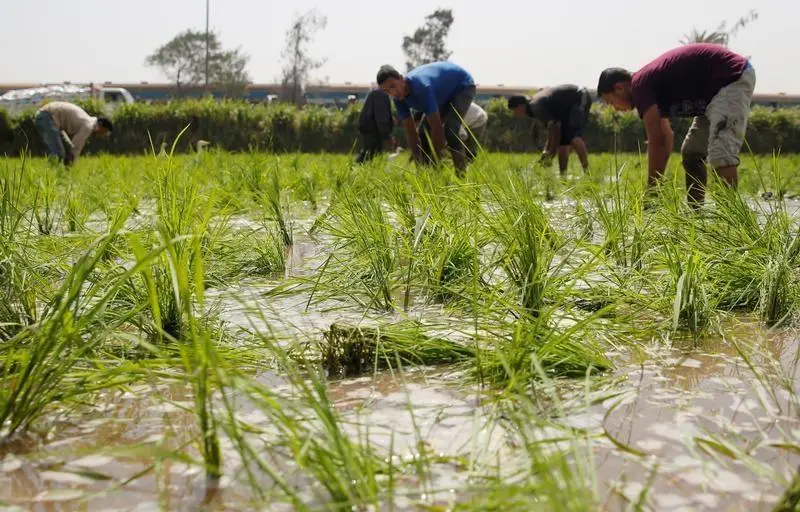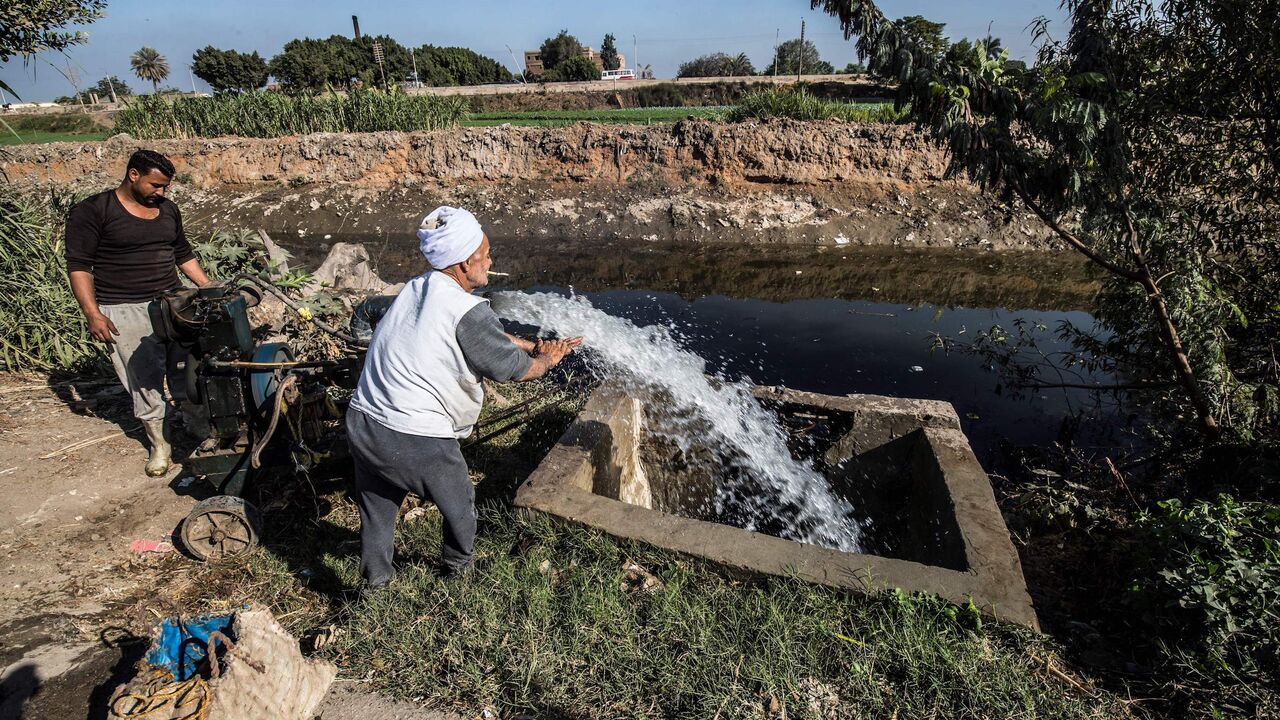Food & Climate
Egypt is currently working on developing new seeds for a number of crops that consume less irrigation water to rationalize water consumption, in addition to increasing their ability to resist pests and extreme weather such as drought, in addition to salinity.
These include 4 types of rice to increase the productivity of the acre to 5 tons, with the aim of rationalizing irrigation water, and 7 types of sorghum and maize to reach the productivity of the acre to 30 ardebs.
This was stated by the Minister of Agriculture and Land Reclamation, Alaa Farouk, in the general session of the House of Representatives, according to a statement received by the “Food and Climate” platform, a copy of it, today, Sunday, October 20, 2024.
Developing new seeds, especially for decreasing water consumption in crops planting is vital for Egypt as it has struggled scarcity and water of Nile is threatened from Ethiopian Dam.
The minister added that 5 new types of local beans are being developed and registered that are resistant to orobanche and tolerant of diseases; with a productivity of more than 10 ardebs per acre.
Developing new seeds of onion
He pointed out that the ministry aims in its plan to derive and register other types of some crops such as: barley (5 types that tolerate salinity and drought) and (2 new types of onion) with export specifications and fodder crops (3 new types of Egyptian clover), in addition to deriving and registering 6 new types of oil crops such as (peanuts – sunflower – sesame – flax).
In recent years, Cairo has deriving a number of crops amounting to 60 types and hybrids of wheat, barley, corn, rice, local beans, oil crops and fodder crops to improve productivity per acre, according to Farouk.
A national program is also being implemented to localize the derivation of new types of vegetable crops, support seed production and reduce their import from abroad.
The Egyptian Minister of Agriculture, Alaa Farouk, said that the ministry encourages research centers to continue developing new varieties with high productivity, early maturity and low water requirements in line with the targets of the current government program, and a number of new varieties are being developed and registered – in addition to existing varieties – for strategic crops.
Among these crops is wheat, as 7 new types are being developed and registered to bring the productivity of the acre to 25 ardebs, including two new types currently under registration, noting that Egypt ranks fifth in the world in productivity per unit area for the wheat crop, according to the minister.

The largest importer of wheat
It is noteworthy that Egypt is the largest importer of wheat in the world, and its purchases affect global prices, especially when requesting to purchase large quantities. The Egyptian citizen relies mainly on bread for his food. Russia is the largest exporter of wheat to Egypt.
Egypt has a plan targeting the expansion of local vegetable seed production over the next three years. Currently, communication and negotiation procedures are being taken with some foreign entities and companies for joint production of vegetable seeds, and cooperation in the field of hybrid seed production (tomatoes, cucumbers, peppers) as a first stage, and “we are completing the protocols for cooperation.”
Farouk explained that there are some problems related to the multiplication process, screening and storage stations, and providing quantities of good seeds to cover all areas targeted for strategic crops, so the ministry aims to develop preparation and screening stations and expand the production of certified seeds, especially for strategic crops, including: wheat, corn, rice and soybeans, during the next three years.
The minister said: “We have directed specialists to intensify work on providing certified seeds; to increase the coverage rate of strategic crop areas, in addition to providing seeds for all new areas in national desert reclamation projects, in cooperation with the Future of Egypt for Sustainable Development Agency. We have also directed work to provide a surplus of certified seeds for export to Arab and African countries, and the quantities provided for export recently amounted to 440 tons of wheat and corn seeds”.
He continued: “We also directed the preparation and provision of seeds for the winter season (2024/2025) for crops (wheat – clover – local beans – barley) of high-yielding varieties, and achieving justice in distribution to farmers at all outlets affiliated with the agricultural departments in the governorates before the planting date with sufficient time, taking into account the variety policies announced by the Agricultural Research Center.”

Egyptian Minister of Agriculture, Alaa Farouk, said that his country aims to expand the use of modern mechanization, terrace farming methods, laser leveling and soil improvement in lands planted with strategic crops to provide these services and expand them over more than one million acres in old lands, during the next three years, in support of farmers while providing these services to private sector companies.
The minister pointed out that the ministry provides agricultural equipment and machinery to reclaimed areas and small farmers in the valley and delta regions. This is supported by funding from the European Union to implement a project to develop agricultural mechanization systems in Minya and Fayoum governorates.

